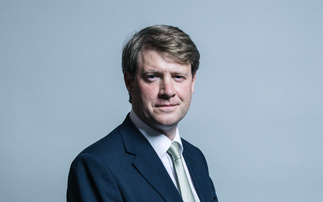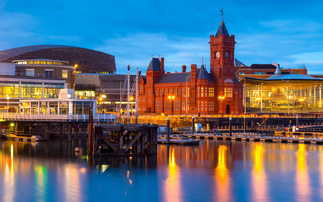G20 communique again underlines commitment to tackling climate change, but green groups slam leaders for failing to seize opportunity to boost Paris Summit
The G20 group has today underlined it commitment to delivering a "fair, balanced, ambitious, durable and dynamic" Paris Agreement for tackling global greenhouse gas emissions, declaring that climate change remains "one of the greatest challenges of our time".
The communique published at the close of the two day Antalya Summit in Turkey included a lengthy section on "buttressing sustainability" that underscored leaders' public commitment to tackling climate change and enhancing sustainable development.
Specifically, the text highlighted the G20's backing for the UN's recently adopted Sustainable Development Goals (SDGs), endorsed plans across the group to boost food security, and "reaffirmed" the long-standing commitment to "rationalise and phase-out inefficient fossil fuel subsidies that encourage wasteful consumption, over the medium term, recognising the need to support the poor".
"We recognize that actions on energy, including improving energy efficiency, increasing investments in clean energy technologies and supporting related research and development activities will be important in tackling climate change and its effects," the text stated, adding that progress had been made on "existing work streams on efficiency and emissions performance of vehicles, particularly heavy duty vehicles, networked devices, buildings, industrial processes and electricity generation, as well as financing for energy efficiency".
The G20 also reiterated its support for the Paris Summit and the UN's goal of finalising a new agreement that will help keep global temperature increases below 2C.
"We affirm that the Paris agreement should be fair, balanced, ambitious, durable and dynamic," the text stated. "We underscore our commitment to reaching an ambitious agreement in Paris that reflects the principle of common but differentiated responsibilities and respective capabilities, in light of different national circumstances."
Leaders also confirmed they are prepared to implement the national climate action plans, known as INDCs, which they have submitted to the UN. "We will instruct our negotiators to engage constructively and flexibly in the coming days to discuss key issues, among other things, mitigation, adaptation, finance, technology development and transfer and transparency in order to arrive at Paris with a way forward," the text added.
However, hopes the G20 would back proposals for a new formal international Financial Stability Board (FSB) to investigate so-called 'carbon bubble' risks were deferred as the group simply instructed the working group looking at the concept to continue to "engage with public- and private- sector participants on how the financial sector can take account of climate change risks".
The communique faced immediate criticism from green groups who accused G20 leaders of failing to deliver any tangible progress and missing the opportunity to use the last major international meeting before the Paris Summit to address some of the issues that remain deadlocked ahead of the talks.
"The G20 leaders failed to grapple their chance to show to the world community that they can be united to deal with the challenges we are confronted with," said Wendel Trio, director of Climate Action Network (CAN) Europe. "Now was the time to agree on specific measures to tackle climate change and limit fossil fuel pollution, and make progress on some of the crunch issues. We are disappointed our leaders failed to do so."
Green groups, including a host of business leaders, had been hoping the G20 Summit could provide a boost to momentum ahead of the Paris Summit by firming up long-standing plans to phase out fossil fuel subsidies, providing a clearer indication that the world's wealthiest economies will increase climate funding for poorer nations, and formally adopting a target to deliver a net zero emission economy during the second half of the century.
The communique followed a speech at the G20 meeting from UN Secretary General Ban Ki-moon in which he urged world leaders to involve themselves directly in delivering an ambitious Paris Agreement. "As we approach Paris, a number of key issues are still in play." he said. "They include equity and differentiation, finance and ambition. These issues have proven too challenging for your negotiators to resolve on their own. They need clear guidance from you. There is no time left."
"The official negotiation period is almost over. The only way to bridge the remaining gaps is for you yourself to engage, with a clear grasp of what is at stake, and give the necessary instructions to your negotiators."
Specifically, he warned progress was urgently needed on funding to help developing nations tackle escalating climate risks and on an agreement to ensure national emission reduction pledges are reviewed at regular intervals. "Current ambition must be the floor not the ceiling for future efforts," he said.
He also argued there were clear economic benefits to be gained from an ambitious new agreement. "The private sector needs a clear signal that the low-carbon transformation of the global economy is inevitable, beneficial and already under way," he said.
"Over the next 15 years, the world will make massive investments in new infrastructure for cities, energy and agriculture," he added. "If the trillions to be spent are directed towards low-carbon goods, technologies and services, we will be well on our way towards a more sustainable, equitable and climate-resilient world. But if we continue to invest in dirty, fossil fuel-intensive development, the consequences for all countries will be dire."
The new text came as French and UN officials confirmed the Paris Summit would go ahead in the wake of the terror attacks across the city on Friday.
Prime Minister Manuel Valls told local radio that none of the world leaders scheduled to attend had asked for the meeting of up to 40,000 delegates to be postponed. However, he added that security measures around the summit would be enhanced and side events and marches that had been planned alongside the negotiations would be scaled back or cancelled.
This article is part of BusinessGreen's Road to Paris hub, hosted in association with PwC.









